
- 05-01-2025 -
Gospel reading: John 1:1-18
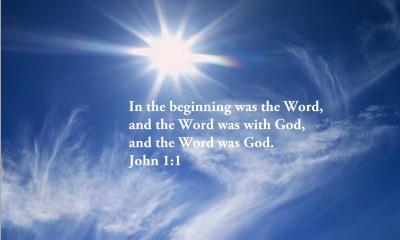 vs.1 In the beginning was the Word: the Word was with God and the Word was God.
vs.1 In the beginning was the Word: the Word was with God and the Word was God.
vs.2 He was with God in the beginning.
vs.3 Through him all things came to be, not one thing had its being but through him.
vs.4 All that came to be had life in him and that life was the light of men,
vs.5 a light that shines in the dark, a light that darkness could not overpower.
vs.6 A man came, sent by God. His name was John.
vs.7 He came as a witness, as a witness to speak for the light, so that everyone might believe through him.
vs.8 He was not the light, only a witness to speak for the light.
 vs.9 The Word was the true light that enlightens all men; and he was coming into the world.
vs.9 The Word was the true light that enlightens all men; and he was coming into the world.
vs.10 He was in the world that had its being through him, and the world did not know him.
vs.11He came to his own domain and his own people did not accept him.
vs.12 But to all who did accept him he gave power to become children of God, to all who believe in the name of him
vs.13 who was born not out of human stock or urge of the flesh or will of man but of God Himself.
vs.14The Word was made flesh, he lived among us, and we saw his glory, the glory that is his as the only Son of the Father, full of grace and truth.
vs.15 John appears as his witness. He proclaims:
“This is the one of whom I said:
He who comes after me ranks before me because he existed before me.”
vs.16 Indeed, from his fulness we have, all of us, received – yes, grace in return for grace,
vs.17 since, though the Law was given through Moses, grace and truth have come through Jesus Christ.
vs.18 No one has ever seen God; it is the only Son, who is nearest to the Father’s heart, who has made him known.
*******************************************************
We have four commentators available with whom you may wish to reflect on the scriptures.
Michel DeVerteuil : Holy Ghost Father, late director of the Centre of Biblical renewal .
Thomas O'Loughlin: Professor of Historical Theology, University of Wales, Lampeter.
Sean Goan: Studied scripture in Rome, Jerusalem and Chicago and teaches at Blackrock College and works with Le Chéile
Donal Neary SJ: Editor of The Sacred Heart Messenger and National Director of The Apostleship of Prayer.
***********************************
Michel DeVerteuil
Lectio Divina
www.columba.ie
This passage is the prologue to St John’s gospel, is a very deep teaching on the mystery of the incarnation. But do not let yourself be intimidated by the depth; remember that it was written for you; like the whole Bible, it was “for you and for your salvation that it came down from heaven.”

It may be helpful to divide the passage as follows:
Verse 1: The Word of God which was made flesh had his beginnings with God before creation. Identify what in your experience was an incarnation of the Word and then remember when you knew that this word was with God from all eternity.
Verses 2 - 5: The story of creation, understood as an ongoing process.
Verses 6 – 8: the vocation of John the Baptist; recognise in him the vocation of all great people.
Verses 9 – 14: St John’s presentation of the incarnation. Recognise the mystery from your own experience, in particular the strange mystery of the one who made and sustains humanity being rejected by this same humanity.
Verses 16 – 18: A further meditation on the mystery of the Incarnation. Note especially the process of growth “from grace to grace”, and the difference between Jesus and all others.
Scripture Prayer
“To the end of our lives the Bible remains an unexplored and unsubdued land full of concealed wonders and choice treasures.” ... Cardinal Newman
Lord, we thank you for the deep moments of Bible  reading
reading
when we knew that we were in the presence of a Word
which existed from the beginning before time began,
which was with you before you created the world,
which was truly divine, with you from the beginning, and which was made flesh and was living among us.
“In meditation I pass through my body which exists in time and space, and beyond my thoughts which reflect my body-consciousness. I discover my ground in the Word, my real Self which exists eternally in God and with God....” Bede Griffiths
Lord, we thank you for the moments of deep prayer when we knew that we have life in your Word, that Word which was in the beginning, which was with you and was you.
Lord, humanity today wants to live independently of you,
and even Christians speak as if you created the world and then left it to its own devices.
We thank you for the teaching of St John reminding us that all things come to be only because you speak a Word, and that every single thing that exists today
has its being because that Word continues to be spoken in it,
and the only way that anything which has come to be has life today
is because your Word lives within it.
[caption id="attachment_76019" align="alignleft" width="250"]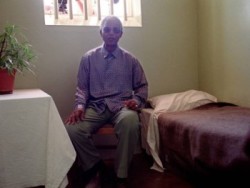 Nelson Mandela remembers his painful 28 year journey in prison.[/caption]
Nelson Mandela remembers his painful 28 year journey in prison.[/caption]
Lord, we thank you that the human spirit is unconquerable,
it is a light that comes from you,
a light that continues to shine
even when there is great darkness,
a light that no darkness can overcome.
“Far from being the ultimate measure of all things, human beings can only realize themselves by reaching beyond themselves."
.... Paul VI, Populorum Progressio
Lord, how true it is that we can only find our dignity as your sons and daughters
if we believe that there is more to us than a human birth, the urges of the flesh and the human will and that within us your love is at work.
“Of all the crimes of colonialism there is none worse that the attempt to make us believe that we had no indigenous culture of our own.” ...Julius Nyerere
Lord, we pray that as Christians we may live the message of the Incarnation,
that your eternal Word was made flesh, so that in every culture you are at work,
and if we look at our past in the light of faith we will see your glory,
Jesus at work in our history, full of grace and truth.
Lord, a conversion experience is always a home-coming:
~turning away from an addiction,
~being reconciled with our family,
~ forgiving an old hurt,
~ going to confession after a long absence.
Once we are there we look back and wonder at our resistance.
Here was something that we needed in order to live, and yet we did not recognise it;
the truth of ourselves demanded it, and yet we did not accept to do it.
Now, Lord, by your grace, we know that your Word has been made flesh
and found a home in us. Thank you, Lord.
“One of the deepest joys of life is to be used for a purpose recognised by yourself as a mighty one.”.... George Bernard Shaw
Lord, we thank you for times when we have the deep satisfaction of knowing that we were working for a noble cause, one that we know is far greater than ourselves, even though we are making a contribution to it, so that we can say like John the Baptist that what comes after us ranks before us because it existed before us.
“There is nothing in my former ministry that I would repudiate except my many sins and shortcomings. My becoming a priest in the Roman Catholic Church will be the completion and right ordering of what was begun thirty years ago.” ...Richard Neuhaus, Lutheran pastor, on entering the Catholic Church and asking for ordination as a priest; October 1990.
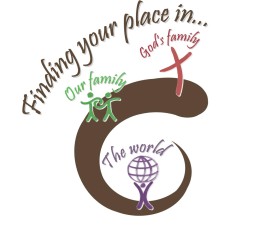 Lord, we pray for all those who are becoming members of our Church, that they may experience their life up to now as being fulfilled, as having received from your fullness,
Lord, we pray for all those who are becoming members of our Church, that they may experience their life up to now as being fulfilled, as having received from your fullness,
the grace of the present fulfilling the grace of the past.
*****************************
Thomas O'Loughlin,
Liturgical Resources for the Year of Luke
www.Columba.ie
Introduction to the Celebration
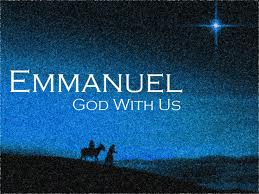 Christmas is now something we are beginning to talk about as having happened: ‘How did you get over Christmas?’ are the opening words of many of our conversations at the moment. But for us Christians we are still trying to plumb some of the depths of what it means to confess that the Word became flesh and dwelt among us. So we have gathered here to offer thanks to the Father through Christ, while in our readings we will be trying to make sense of what it means to say that ‘Christ has come among us.’
Christmas is now something we are beginning to talk about as having happened: ‘How did you get over Christmas?’ are the opening words of many of our conversations at the moment. But for us Christians we are still trying to plumb some of the depths of what it means to confess that the Word became flesh and dwelt among us. So we have gathered here to offer thanks to the Father through Christ, while in our readings we will be trying to make sense of what it means to say that ‘Christ has come among us.’
Homily Notes
[caption id="attachment_76024" align="alignright" width="300"]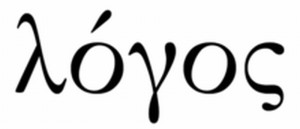 The Johannine Prologue describes Christ as “a pre-existent Divine Being–the Word–who has become human.[/caption]
The Johannine Prologue describes Christ as “a pre-existent Divine Being–the Word–who has become human.[/caption]
1. The Johannine prologue is one of the truly classic Christian texts: generation after generation have found it a way towards helping them reflect on the mystery of the God we profess, the nature of our identity as God's daughters and son, and the mystery of the Logos entering into our hearts through becoming flesh in Jesus of Nazareth. It is used in the middle of the Angelus, in the Nicene Creed, in every book of Christian theology, virtually every one of the Fathers offered an exegesis of it, and, indeed, for centuries it was read at every celebration of the Eucharist in the Roman Rite as 'the Last Gospel'. However, given that it is such an important text, it is also one of those texts which gets 'skipped over' in preaching as 'too difficult', 'too theological' ('theological' being used as an adjective of abuse), or 'too far above the heads of my congregation'. But reflection on the mystery of mysteries is always more difficult than a moral-teaching story. Believers cannot avoid having a theology (even if they do not realise they have one), and stretching the minds of those with us in the Eucharistic assembly is the primary task of preaching.
2. Let us assume that by today the Christmas crowd has disappeared, the rush to get ready for Christmas is over, and now there is some less pressurised time while it is still festive in spirit: now is a good time to offer a reflection on the mystery of the Christ-event that would be too elaborate for Christmas Day. One way to do this is to offer a formal exegesis of the text in three parts. After the gospel is read and the assembly has sat down, announce the plan explicitly: to take this basic text and lead a reflection on it so that everyone in the assembly can be fed by it.
3. The prologue can be broken into four sections:
verses 1-5;
verses 6-8;
verses 9-15; and
verses 16-18.
When everyone is sitting, including the preacher - standing is not a posture which says 'I am leading a meditative exploration' of a sacred text, someone (other than the preacher) reads the first of these sections, then follows the reflection, then the pattern is repeated until all eighteen verses have been reflected on.
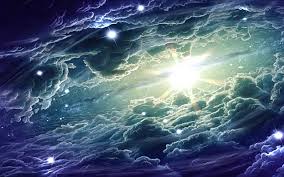 4. Section a: Jn 1:1-5. The gospel begins with the divine realm: the Word dwelling eternally in the bosom of the Father. This is the mystery that is at the beginning of all that is created: the creation that we see and belong to as material beings. God also is the source of the invisible creation: all those beings the angels - created by God but which do not belong to the universe of our existence. All that exists has being made through the Word: we have the stamp of the Word somehow in the very depths of our being. We come into existence from God, we have the spark of the divine in our existence, and we have been made to be united ultimately in the life of God.
4. Section a: Jn 1:1-5. The gospel begins with the divine realm: the Word dwelling eternally in the bosom of the Father. This is the mystery that is at the beginning of all that is created: the creation that we see and belong to as material beings. God also is the source of the invisible creation: all those beings the angels - created by God but which do not belong to the universe of our existence. All that exists has being made through the Word: we have the stamp of the Word somehow in the very depths of our being. We come into existence from God, we have the spark of the divine in our existence, and we have been made to be united ultimately in the life of God.
We Christians cannot imagine God simply as the 'alien other' as so many humans imagine God: we are made by God, we are made through the Word and we find our true identity in God. God is not some mighty way-off force, but our very source. In him we can find our happiness.
Quotes for reflection:
God is more intimate to us than our most intimate thought. (St Augustine).
Humans 'search for God and perhaps grope for him and find him, though indeed he is not far from each one of us: for "In him we live and move and have our being'" ...Paul preaching as told in Acts 17:27-8).
We believe in one Lord, Jesus Christ, '" begotten not made, of one Being with the Father. Through him all things were made. (lhe Nicene Creed).
 5. Section b: Jn 1:6-8. Having spoken of all creation - the elements, the living beings, us humans, the angels - coming forth from God through the Word, now we enter the human world of history. From speaking about all humanity and all time, John now speaks of one human being: John the Baptist. God's care is not just for the whole of creation as a generality: he enters into the personal lives and histories of each human being in their specific situation, culture, with all his or her p:roblems and limitations as well as his or her talents and possibilities. John was sent from God. His vocation was to announce and point out the Anointed One. He was the prophet of our great Prophet. He had a task unique to his moment and place in human history: 'to bear witness to the light, that all might believe through him.' He is our great model: each of us has this same task within our own situation, our own moment, in our own small world. We are 'not the light, but' are called 'to bear witness to the light.' Whenever the light is obscured by our wicked deeds, by the poor suffering while we enjoy plenty, by our indifference in the face of evil, we fail in our basic vocation. In failing to announce the Light, we deny him.
5. Section b: Jn 1:6-8. Having spoken of all creation - the elements, the living beings, us humans, the angels - coming forth from God through the Word, now we enter the human world of history. From speaking about all humanity and all time, John now speaks of one human being: John the Baptist. God's care is not just for the whole of creation as a generality: he enters into the personal lives and histories of each human being in their specific situation, culture, with all his or her p:roblems and limitations as well as his or her talents and possibilities. John was sent from God. His vocation was to announce and point out the Anointed One. He was the prophet of our great Prophet. He had a task unique to his moment and place in human history: 'to bear witness to the light, that all might believe through him.' He is our great model: each of us has this same task within our own situation, our own moment, in our own small world. We are 'not the light, but' are called 'to bear witness to the light.' Whenever the light is obscured by our wicked deeds, by the poor suffering while we enjoy plenty, by our indifference in the face of evil, we fail in our basic vocation. In failing to announce the Light, we deny him.
Quotes for reflection:
'His future coming was proclaimed by all the prophets ... John the Baptist was his herald and made him known when at last he came' (Advent Preface II).
'You [Lord] chose John the Baptist from all the prophets to show the world its redeemer' (Preface of John the Baptist).
 6. Section c: Jn 9-15. Now the Word enters the history of the creation as an individual: not in a massive display of force - we tend to think of force and power when we think of the divine - but in gentleness. He was already in the depths of everything created; now he entered the creation, in a new way, to bring all to perfection. Christ is not a policeman announcing rules alien to us, but gently calling us to come to that perfection of which each of us is capable. 'He came to his own home, and his own people received him not. But to all who received him, who believed in his name, he gave power to become children of God.' This is who we are: the children of God, those who have accepted his life into their own lives in baptism.
6. Section c: Jn 9-15. Now the Word enters the history of the creation as an individual: not in a massive display of force - we tend to think of force and power when we think of the divine - but in gentleness. He was already in the depths of everything created; now he entered the creation, in a new way, to bring all to perfection. Christ is not a policeman announcing rules alien to us, but gently calling us to come to that perfection of which each of us is capable. 'He came to his own home, and his own people received him not. But to all who received him, who believed in his name, he gave power to become children of God.' This is who we are: the children of God, those who have accepted his life into their own lives in baptism.
The Word has become flesh: this has been the reason for all our celebrations at Christmas; we have beheld his glory, this is why we can be the people of joyfulness. The Word has pitched his tent among us, in all our needs, among our sufferings, in the ordinary ups and down of everyday life.
Quotes for reflection:
'In the wonder of the incarnation your eternal Word has brought to the eyes of faith a new and radiant vision of your glory' (Christmas Preface I).
'Christ is your Son before all ages, yet now he is born in time. He has come to lift up all things to himself, to restore unity to creation, and to lead mankind from exile into your heavenly kingdom'(Christmas Preface II).
'We believe in one Lord, Jesus Christ ... he came down from heaven, by the power of the Holy Spirit he became incarnate from the Virgin Mary and was made man' (The Nicene Creed).
7. Section d: Jn 1: 16-18. So who are we that have gathered here for this Eucharist? What has happened to us to bring us together as a community of sisters and brothers, charged with a common task and with individual distinct vocations? We are those who have received 'from' Christ's 'fullness'. We 'have all received, grace upon grace'. Life with God, life in the divine presence is ours because of Jesus Christ: ' grace and truth came through Jesus Christ.' We are the people to whom the Lord offers strength in weakness, to whom he offers com-
fort for our wounds, healing for our illnesses, sight for our blindness, wisdom for our stupidity, and forgiveness for our sins.
In Jesus we have seen our God made visible:
'No one has ever seen God; the only Son, who is in the bosom of the Father, he has made him known.'
Quotes for reflection:
'Today you fill our hearts with joy as we recognise in Christ the revelation of your love. No eye can see his glory as our God, yet now he is seen as one like us' (Christmas Preface 11).
'In him we see our God made visible and so are caught up in love of the God we cannot see'
(Christmas Preface I).
'Today ... a new light has dawned upon the world: God has be-come one with humankind, and humankind has become one again with God. The eternal Word has taken upon himself our human weakness, giving our mortal nature immortal value'(Christmas Preface III - adapted).
*******************************************************
Sean Goan
Let the reader understand
www.columba.ie
Gospel
The Gospel of John has no account of the birth of Jesus, rather the evangelist chooses to begin his story with a poem and that is the gospel for this Mass. Rather than considering the life of Jesus from the time of his birth, John seeks to explore his identity by meditating on Jesus as the Word made Flesh. The Jews to whom the good news was first preached were very familiar with the idea of the word of God through their oral and written traditions. For generations God had made himself and his saving will known to them through his word and now that word becomes human, and as a human being reveals the glory of God in a way that is beyond our wildest imaginings. This is a staggering claim and one that many then, and indeed still today, find too hard to believe. Yet it is the very heart of the Christmas message.
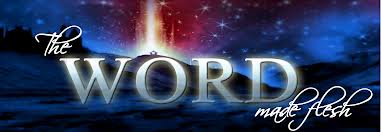
Reflection
With these readings we are reminded again just how profoundly beautiful the feast of Christmas is. All human life is given a dignity which, if we take time to reflect upon it, transforms our understanding of ourselves and those around us. The light breaks through into our fragile human hearts and shows us what is possible if we only have the courage to believe in what God has done and continues to do for us through his Son.
*******************************
Donal Neary SJ
Gospel Reflections
www.columba.ie
Christmas: family feast
Jesus grew up like all of us in a family - coming from the family of heaven to that of Mary and Joseph and their extended family. We know his grandparents' names; he had cousins and he didn't get on with them all; he had an aunt as the wife of Clopas.
All of us are children, some are parents, some are grandparents, aunts and uncles. All play an important role in the lives of the family - the younger generation. Where Church and state strengthen and support parents and children they are doing something essential.
None of us has the perfect family. Families include people with all sorts of difficulties - alcohol or drugs, crime and prison, people who don't talk to each other; families who had to leave home and come to Ireland for work, or leave Ireland for work. Joseph and Mary had their family difficulties - their child could have been killed by a mad king Herod, and they couldn't go home for fear of him; Joseph died leaving Mary a widow, and Jesus was murdered in front of his mother. The holy family know what family life is about, and our faith is a support to family life.
In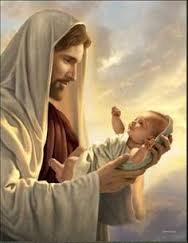 our family we learn most of the important things of life. We salute today families who survive and support each other in difficult times: parents bringing up their children in a one-parent family; grandparents making sacrifices for another generation; people widowed and living now without their loved ones; adoptive and foster parents. We thank our parents and families for sacrifices made to bring us up.
our family we learn most of the important things of life. We salute today families who survive and support each other in difficult times: parents bringing up their children in a one-parent family; grandparents making sacrifices for another generation; people widowed and living now without their loved ones; adoptive and foster parents. We thank our parents and families for sacrifices made to bring us up.
Jesus, guide us in life;
Mary, look after us;
Joseph, pray for us.
*********************************